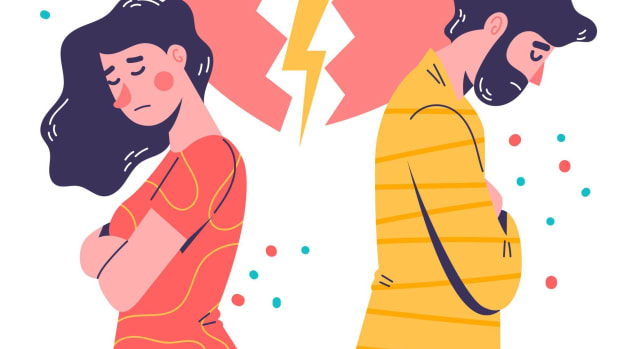Obsessive Compulsive Disorder (OCD) is a mental disorder characterized by intrusive, unwanted thoughts or images that cause distress. It’s estimated that around 1% of the population suffers from OCD at some point in their lives. In relationships, it can be incredibly difficult to deal with OCD. One partner may feel overwhelmed by the constant fear and concern, while the other may feel suffocated by the need for the perfect treatment. This blog post offers insights into how OCD and relationships affect each other and offers advice on how to both cope and support one another through this difficult time.
Contents
What is OCD?
 OCD is a mental disorder that causes people to obsess over certain tasks or rituals, often leading to distress. People with OCD may be excessively worried about specific thoughts or situations — for example, whether they’ve done something “bad” or are experiencing anxiety in general. They may need to repeat certain tasks over and over again, may feel compelled to clean compulsively, or may avoid certain activities out of fear of causing harm.
OCD is a mental disorder that causes people to obsess over certain tasks or rituals, often leading to distress. People with OCD may be excessively worried about specific thoughts or situations — for example, whether they’ve done something “bad” or are experiencing anxiety in general. They may need to repeat certain tasks over and over again, may feel compelled to clean compulsively, or may avoid certain activities out of fear of causing harm.
OCD can have a significant impact on relationships because it can make it difficult for people with the disorder to function effectively. For example, someone with OCD might become obsessed with worrying about whether their partner is thinking critically about them or is upset with them. This can lead to strained and uncomfortable conversations, as well as problems communicating effectively. Alternatively, partners who are constantly cleaning and checking things in an attempt to alleviate OCD symptoms may create tension and resentment.
Both partners likely experience some level of stress and strain as a result of OCD-related relationship issues, but the severity will depend on individual factors (for example, how deeply entrenched the obsessions are). In either case, it’s important for both partners to be aware of the effects OCD has on their relationship and take steps to deal with it constructively.
What are the signs and symptoms of OCD?
There is no definitive answer to this question, as the symptoms of OCD can vary from person to person. However, some general signs and symptoms of OCD may include intrusive thoughts or images that take up a lot of attention and cause distress; repetitive behaviours or mental rituals that are performed in an effort to alleviate the anxiety or distress caused by the intrusive thoughts or images; difficulty controlling these behaviours; and significant impairment in functioning.
OCD can also affect relationships in a number of ways. For example, people with OCD may become preoccupied with fears about contamination or harm, which can lead them to avoid certain areas or avoid specific people. They may also become hypersensitive to any kind of perceived threat, which can make it difficult for them to maintain healthy relationships. In addition, people with OCD may experience a great deal of guilt and shame around their mental health issues, which can negatively impact their relationships.
How does OCD affect relationships?
 OCD can have a profound effect on relationships. The individual with OCD may be excessively preoccupied with thoughts or images that are intrusive and disturbing, causing them distress. This can lead to difficulty in concentrating on anything else, making it difficult to have a normal conversation or interact with others. Because of this, relationships may suffer a result.
OCD can have a profound effect on relationships. The individual with OCD may be excessively preoccupied with thoughts or images that are intrusive and disturbing, causing them distress. This can lead to difficulty in concentrating on anything else, making it difficult to have a normal conversation or interact with others. Because of this, relationships may suffer a result.
The individual with OCD may also start to avoid certain situations or people because of the fear of having the obsessive thought again. This can make it difficult for them to form healthy relationships, as they may start to rely on their partner too much and not give them enough freedom. Ultimately, this can lead to tension in the relationship as one party feels restricted and suffocated.
If left untreated, OCD can also take a toll on the individual’s overall mental health. Sufferers may experience low self-esteem, depression, and anxiety disorders. As relationships are often keystone points in well-being, any disruption to them can be harmful. It is important for both parties involved in an OCD relationship to seek help if they feel like the other isn’t coping well or if there are signs of deterioration.
How to deal with OCD in a relationship?
OCD is a mental disorder that can make it difficult for people to live normal lives. It’s often called the “fear of dirt” or “obsession with order.” People with OCD often have thoughts or images that keep coming back to them, no matter how much they try to ignore them.
OCD can also affect relationships. If one person with OCD is constantly worrying about what might go wrong, it can be hard for their partner to focus on anything else. This can lead to strained relationships and communication problems.
If you’re in a relationship with someone who has OCD, it’s important to understand how it affects them and work together to deal with it. There are some things you can do to help your partner feel less worried and more connected:
– Respond calmly and patiently when your partner starts having panic attacks or has recurring thoughts or images from their OCD. Don’t take things personally; just reassure them that you’re there for them and understand what they’re feeling.
– Remember that your partner doesn’t have control over their thoughts or urges, even if they seem overwhelming at times. don’t expect them to be able to stop thinking about their fears overnight, but trying to support them and accept them as they are is important.
– Talk openly about any concerns you have about your partner’s health or well-being. It can be hard for either party to bring up these topics, but discussing the issue will help both of you
How Does OCD Affect Work Relations
OCD affects work relationships in a few ways. First, people with OCD may be excessively rigid and meticulous in their thinking and actions, which can lead to difficulties coordinating or communicating with other individuals. Second, sufferers may experience problems with trust, which can make it difficult to build or maintain productive working relationships. Finally, those with OCD may be particularly sensitive to potential threats to their safety or well-being, which can create tension and conflict in their workplace.
How Does OCD Affect Intimacy
OCD can affect intimacy in a number of ways. For people with OCD, intrusive thoughts and images can be so overwhelming that they feel like they have to avoid certain situations or activities. This can make it difficult to form or maintain relationships. People with OCD may also experience difficulty tolerating uncertainty or being around unfamiliar people, which can make it difficult to trust others. Additionally, people with OCD may experience strong urges to clean or order things, which can create tension in relationships as their partners do not always understand why they need to clean constantly or why they cannot touch something even if it is not dirty. Ultimately, these difficulties can lead to decreased intimacy in both personal and professional settings.
Tips On How To Be Compassionate Towards People With OCD
1. Approach OCD with compassion. Recognize that OCD is a mental health condition, not a character flaw.
2. Don’t judge or criticize OCD thoughts or behaviours.
3. Get involved and talk to your partner about how OCD is affecting their relationship.
4. Respect your partner’s need for privacy and discretion when it comes to their OCD symptoms.
5. Let your partner know that you are there for them, and offer any support they may need.
Conclusion
OCD can affect relationships in a variety of ways. Some people find that their OCD takes away the spontaneity and joy from their relationships, while others find that their OCD makes it difficult to communicate with their partners. For some, OCD also creates a fear of abandonment that can have serious consequences for their relationship. No matter how OCD affects your relationship, there is always hope for improvement. Talking to your doctor or therapist about your concerns may help you work through them together.
For more information and guidance, please contact OCDMantra. OCD is a mental health disorder characterized by obsessions and compulsions. If you have any queries regarding OCD treatment, OCD Counseling, ERP therapy experienced therapists at OCDMantra can help: Book a trial OCD therapy session


